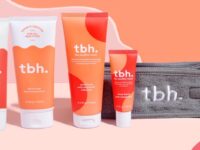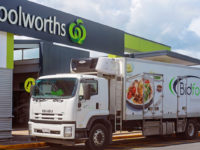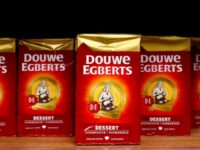
Less than three weeks have passed since the death of African-American George Floyd in police custody, which sparked global protests calling for an end to racial injustice.
In that time, a raft of major brands including L’Oreal and Adidas have been accused of racist behaviour, ranging from discriminatory hiring practices, to lack of diversity in marketing campaigns, to unequal treatment of people in their stores.
This week, a number of local and global brands have been thrust into the spotlight over suggestions of offensive brands names and mascots.
Australian comedian Josh Thomas sparked a debate on Twitter over the weekend when he suggested that Coon cheese be renamed over suggested associations with a racial slur.
Thomas tweeted “Hey Australia – are we still chill with this?” alongside an image of Coon packaging.
A spokesperson for Saputo Dairy Australia told Inside FMCG that the name was inspired by a man who invented the processing technique used to create the original product.
“Our COON Cheese brand name recognises the work of Edward William Coon, who patented a unique ripening process that was used to manufacture the original COON cheese,” the spokesperson said.
Thomas followed up his original post with a tweet saying, “It’s amazing the respect people have for the name of a man who invented a processing technique of cheese – who died in 1934. And the disrespect they have for Black people.”
Meanwhile, Blackhearts & Sparrows, a chain of bottle shops based in Melbourne, pulled Colonial Brewing Co’s beers from its shelves following complaints over the brand name.
Blackhearts & Sparrows’ owners told the Sydney Morning Herald that the decision was made in light of recent events, both in Australia and around the world.
“While we appreciate that the people behind Colonial Brewing had no malicious intent in their choice of brand name, words have power. We’ve had discussions with Colonial in the past with concerns about their name, but with their branding remaining the same our decision was clear,” the company said.
Inside FMCG contacted Blackhearts & Sparrows and Colonial Brewing Co for comment.
In the UK, Kellogg’s Coco Pops drew criticism from former Labour MP Fiona Onasanya who questioned the cereal giant on why chocolate-flavoured Coco Pops are represented by a monkey while Rice Krispies are marketed using “three white boys”.
A spokesperson for Kellogg Australia said,” The monkey mascot that appears on both white and milk chocolate Coco Pops, was created in the 1980s to highlight the playful personality of the brand.”
“It’s important that we are all talking more about how we can build racial equality. Kellogg stands in support of the black community. We do not tolerate discrimination and believe that people of all races, genders, backgrounds, sexual orientation, religions, capabilities and beliefs should be treated with the utmost dignity and respect,” the spokesperson added.
Former Royal Marine Ben McBean told Good Morning Britain that people are getting side-tracked by pointless culture war debates.
“I’m trying to fight real racist human beings who are going to cause me and my family harm and change my son’s future … and you’ve got people fighting to get the monkey taken off Coco Pops cereal for God’s sake.”
“The reality is we’re fighting too many battles that aren’t really there,” he added.
Many consumers have also come out in support of the brands, calling for an end to ‘cancel culture’.
Abas Mirzaei, a senior lecturer in marketing at Macquarie University said expecting a company to drop a brand name overnight is unrealistic and starting a new brand from scratch could put brand trust at risk.
“While it is a good time to reflect on branding and communication practices, to make sure a brand’s direct and indirect communications isn’t out of sync with the general public’s values, it is important to understand that brand names won’t become iconic over night, thus changing a name over night isn’t the solution,” Mirzaei told Inside FMCG.
“We have had several companies, even with strong financial support, that have failed to launch a new brand successfully.”
Mirzaei suggested that brands turn the challenge into an opportunity to signal they’re woke, and dedicate efforts to combat an issue.
“Instead of dropping brand names all together, it may be more beneficial to adjust names, or more importantly, come up with new taglines and slogans that are more effective as they can be used to adjust the negative connotation associated with the old name,” he said.
“Replacing the name is a passive approach and won’t have any impact on society nor will it impact those affected.”
















